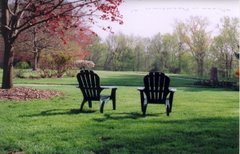
by Bill Walsh
A friend recently told me about a company that produces short videos exploring the Christian faith. I work with teenagers preparing to receive the Sacrament of Confirmation, so I’m always looking for interesting ways to get students to talk. The first video I watched was impressive. It was narrated by a Christian minister named Rob Bell. His message was that discipleship is for everyone and that God believes in each one of us.
He began by explaining the Jewish understanding of discipleship during the time of Jesus. To be chosen as a rabbi’s disciple was a rare and very challenging honor. It would begin with early childhood study. At around six years of age, boys would go to school to learn about the Torah, the first five books of the Hebrew testament. By about ten years of age, most of the boys would have dropped out and would have begun working for their fathers, but the most accomplished of the boys would have been able to memorize all of the Torah. The best of that group would be invited to continue pursuing their studies. By age 15 or 16 the most accomplished of the boys at this level would have been able to memorize all of the Hebrew Testament, from Genesis to Malachi, which is 39 books. Again, many of the boys would have dropped out along the way, but the very best of the best would seek out a rabbi and apply to become his disciples.
Only after a very arduous examination of the candidates would the rabbi select just a few who he considered to be the absolute best to be his disciples. It was such an honor to be a disciple that you didn’t just want to know what your rabbi knew, you wanted to be just like your rabbi, you wanted to do everything he did. There was a saying in that time, a blessing for disciples, “May you be covered in the dust of your rabbi,” because after long journeys following closely behind their rabbi, the disciples would be covered in the dust he kicked up.
And then Jesus came along. He didn’t wait for candidates to come to him. He sought out his followers, and he chose men who were working as fishermen, so they had already dropped out of the pursuit to become a rabbi’s disciple. They weren’t the best of the best. They weren’t even the best. They were the rejects who didn’t make the cut. But by saying, “Come follow me,” Jesus was telling them that they could do what he was doing, that they could be like him. And by choosing these common followers Jesus was saying that his movement was for everyone; men, women, rich, poor, influential, and powerless.
There’s the story of the disciples out on a boat at sea and Jesus came towards them walking on the water. I never understood what would compel Peter to get out of the boat and walk towards Jesus, but in the context of Ron Bell’s story of discipleship, Peter’s actions make a little more sense. If Jesus kept encouraging his disciples that they could be like him and live like him, then Peter would want to do what Jesus was doing, and walk out to him on the water. But then Peter started to sink and called for Jesus to save him. As Jesus grabbed Peter he said, “You of little of faith, why did you doubt?” I always thought that Peter was doubting Jesus. Ron Bell interprets the scene differently. It’s not that Peter doubted Jesus. After all, Jesus wasn’t sinking and Jesus saved Peter. Jesus chided Peter for doubting himself. Peter began to sink, not because he didn’t want to do what Jesus was doing, but because he didn’t believe he could do what Jesus was doing.
I think that the most challenging aspect of discipleship is believing that I can live like Jesus lived. I accept that God loves me unconditionally, despite my many faults. I believe that I don’t have to win God’s love, and I’m thankful, because I know my weaknesses. But to believe that I can live like Jesus lived, that’s both inspiring and scary. But this has been my prayer in recent weeks; to believe that I can live like Jesus lived. It must be true. After all Jesus left his movement in the hands his disciples and they transformed the world. And I’m part of that; we all are. To strengthen my acceptance of God’s faith in me, I have been using Rob Bell’s final words from his video entitled, “Dust” as a prayer. “May you believe in God. But may you come to see that God believes in you. May you have faith in Jesus. But may you come to see that Jesus has faith that you can be like him. A person of love and compassion and truth. A person of forgiveness, and peace, and grace, and joy, and hope. And may you be covered in the dust of your rabbi, Jesus.”
If you are interested in learning more about this video, and the many other selections offered at NOOMA, go to: http://www.nooma.com/, or call (877) 776-7755.
A friend recently told me about a company that produces short videos exploring the Christian faith. I work with teenagers preparing to receive the Sacrament of Confirmation, so I’m always looking for interesting ways to get students to talk. The first video I watched was impressive. It was narrated by a Christian minister named Rob Bell. His message was that discipleship is for everyone and that God believes in each one of us.
He began by explaining the Jewish understanding of discipleship during the time of Jesus. To be chosen as a rabbi’s disciple was a rare and very challenging honor. It would begin with early childhood study. At around six years of age, boys would go to school to learn about the Torah, the first five books of the Hebrew testament. By about ten years of age, most of the boys would have dropped out and would have begun working for their fathers, but the most accomplished of the boys would have been able to memorize all of the Torah. The best of that group would be invited to continue pursuing their studies. By age 15 or 16 the most accomplished of the boys at this level would have been able to memorize all of the Hebrew Testament, from Genesis to Malachi, which is 39 books. Again, many of the boys would have dropped out along the way, but the very best of the best would seek out a rabbi and apply to become his disciples.
Only after a very arduous examination of the candidates would the rabbi select just a few who he considered to be the absolute best to be his disciples. It was such an honor to be a disciple that you didn’t just want to know what your rabbi knew, you wanted to be just like your rabbi, you wanted to do everything he did. There was a saying in that time, a blessing for disciples, “May you be covered in the dust of your rabbi,” because after long journeys following closely behind their rabbi, the disciples would be covered in the dust he kicked up.
And then Jesus came along. He didn’t wait for candidates to come to him. He sought out his followers, and he chose men who were working as fishermen, so they had already dropped out of the pursuit to become a rabbi’s disciple. They weren’t the best of the best. They weren’t even the best. They were the rejects who didn’t make the cut. But by saying, “Come follow me,” Jesus was telling them that they could do what he was doing, that they could be like him. And by choosing these common followers Jesus was saying that his movement was for everyone; men, women, rich, poor, influential, and powerless.
There’s the story of the disciples out on a boat at sea and Jesus came towards them walking on the water. I never understood what would compel Peter to get out of the boat and walk towards Jesus, but in the context of Ron Bell’s story of discipleship, Peter’s actions make a little more sense. If Jesus kept encouraging his disciples that they could be like him and live like him, then Peter would want to do what Jesus was doing, and walk out to him on the water. But then Peter started to sink and called for Jesus to save him. As Jesus grabbed Peter he said, “You of little of faith, why did you doubt?” I always thought that Peter was doubting Jesus. Ron Bell interprets the scene differently. It’s not that Peter doubted Jesus. After all, Jesus wasn’t sinking and Jesus saved Peter. Jesus chided Peter for doubting himself. Peter began to sink, not because he didn’t want to do what Jesus was doing, but because he didn’t believe he could do what Jesus was doing.
I think that the most challenging aspect of discipleship is believing that I can live like Jesus lived. I accept that God loves me unconditionally, despite my many faults. I believe that I don’t have to win God’s love, and I’m thankful, because I know my weaknesses. But to believe that I can live like Jesus lived, that’s both inspiring and scary. But this has been my prayer in recent weeks; to believe that I can live like Jesus lived. It must be true. After all Jesus left his movement in the hands his disciples and they transformed the world. And I’m part of that; we all are. To strengthen my acceptance of God’s faith in me, I have been using Rob Bell’s final words from his video entitled, “Dust” as a prayer. “May you believe in God. But may you come to see that God believes in you. May you have faith in Jesus. But may you come to see that Jesus has faith that you can be like him. A person of love and compassion and truth. A person of forgiveness, and peace, and grace, and joy, and hope. And may you be covered in the dust of your rabbi, Jesus.”
If you are interested in learning more about this video, and the many other selections offered at NOOMA, go to: http://www.nooma.com/, or call (877) 776-7755.



2 comments:
Thank you so much for the uplifting story. I am going through some emotional changes in my life at the moment and reading this just gave me a sense of importance and knowing that I will get throuogh this because God believes in me. God is Great!!! All Glory and Honor to Him and may he keeps blessing you. Thank you again.
Bill-I also facilitate a large confirmation class each year and I also use the Nooma messages...the kids and their parents can 'get their heads around' the way he spreads the word. My daughter is in a prayer group at school-they meet once a week and pray for their peers and teachers...they use the bible and Rob Bell's Nooma for inspiration. We can't hear it enough..our purpose is to love Him, know Him, and serve Him...thank you for your example of how that is done! Karen
Post a Comment